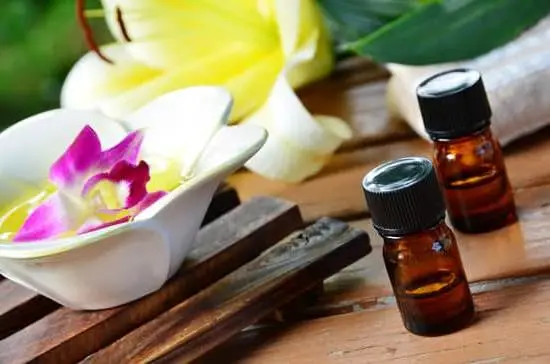Aromatherapy has long been used as a natural remedy to promote relaxation and improve sleep. This introductory section will provide an overview of what aromatherapy is and how it relates to sleep. We will define aromatherapy, explore its origins, and discuss the different types of essential oils used in this practice for sleep enhancement.
Aromatherapy is the use of essential oils derived from plants to promote physical and psychological well-being. These essential oils are extracted from various parts of plants, such as leaves, flowers, or roots, and can be used in different ways, including inhalation or topical application. The practice of aromatherapy dates back centuries, with evidence of its use in ancient civilizations such as Egypt and China.
In terms of sleep enhancement, specific essential oils have been found to have calming properties that can aid in relaxation and improve the quality of sleep. Some commonly used essential oils for sleep include lavender, chamomile, ylang-ylang, and bergamot. Each oil has its unique scent profile and potential benefits for inducing sleep.
Improving sleep through scent is based on the concept that certain scents can influence brain activity and trigger physiological responses that promote relaxation. Scientific studies have explored the link between aromatherapy and sleep, examining how inhaling specific scents can impact brain waves and reduce stress levels. Understanding the science behind aromatherapy’s effect on sleep will shed light on why it is a popular practice for those seeking better restful nights.
The Science behind Aromatherapy and Sleep
Aromatherapy has been used for centuries as a natural remedy for various health issues, including sleep problems. While its benefits have long been recognized in traditional medicine, the science behind aromatherapy and sleep is now gaining more attention from researchers and scientists. This section will delve into the scientific studies and research that explore the link between aromatherapy and sleep.
Studies on the Effects of Scents on Brain Activity
Numerous studies have been conducted to examine how scents can affect brain activity and promote relaxation, ultimately leading to better sleep. One study published in the Journal of Psychophysiology investigated the effects of lavender oil on brain activity during sleep. The researchers found that inhaling lavender oil resulted in an increase in slow-wave sleep, commonly known as deep sleep. Additionally, participants reported feeling more refreshed upon waking up.
Another study published in the Journal of Alternative and Complementary Medicine explored the effects of different essential oils on human brain waves. The researchers found that certain essential oils, such as sandalwood and bergamot, had a calming effect on brain waves, promoting relaxation and reducing anxiety.
The Physiological Mechanisms Involved
The interaction between scent and sleep involves multiple physiological mechanisms. When we inhale certain scents, olfactory receptors in our nose send signals to the limbic system in our brain, which is responsible for emotions, memory, and basic instincts. This stimulates the release of neurotransmitters like serotonin and endorphins, which can induce feelings of calmness and relaxation.
Additionally, some scents can directly impact our central nervous system by affecting levels of hormones such as cortisol (the stress hormone) and melatonin (the sleep hormone). For example, lavender has been shown to reduce cortisol levels while increasing melatonin production, leading to a state of relaxation conducive to better sleep.
Popular Essential Oils for Sleep
Lavender Essential Oil
One of the most popular essential oils for sleep is lavender. Lavender has long been known for its calming and soothing properties, making it an ideal option for improving sleep quality. Research studies have shown that lavender can help reduce anxiety and promote relaxation, leading to better sleep. The scent of lavender has also been found to increase slow-wave sleep, which is the deep sleep phase that is necessary for restorative rest.
There are several ways to use lavender essential oil for sleep. One common method is to add a few drops of the oil to a diffuser or humidifier before bedtime. This allows the scent to disperse throughout the room, creating a relaxing environment conducive to sleep.
Another option is to dilute a few drops of lavender oil in a carrier oil, such as coconut or jojoba oil, and massage it onto the skin before bed. This provides both the aromatherapy benefits and the calming effects of touch.
Chamomile Essential Oil
Another essential oil that is frequently used for sleep is chamomile. Chamomile has been valued for centuries for its calming and sedative properties. It contains compounds that interact with receptors in the brain, promoting relaxation and reducing stress and anxiety.
Chamomile essential oil can be used in various ways to enhance sleep. Diffusing chamomile oil before bed can create a soothing atmosphere that helps prepare the mind and body for restful sleep. Additionally, mixing a couple of drops of chamomile oil with a carrier oil and applying it topically can provide relaxation benefits when massaged into the skin.
Bergamot Essential Oil
Bergamot essential oil is another popular choice for improving sleep quality. It has been found to have both calming and uplifting effects on mood, making it beneficial for individuals struggling with stress or insomnia.
To use bergamot essential oil for sleep, it is recommended to diffuse a few drops of the oil in a diffuser or vaporizer before bedtime. Inhaling the scent can help promote relaxation and reduce anxiety, allowing for better sleep. However, it is important to note that bergamot oil is photosensitive, so it should not be applied topically and exposed to direct sunlight.
Overall, these three essential oils are commonly used for their sleep-inducing properties. Each oil has unique benefits and application methods, making them versatile options for enhancing sleep quality naturally. It may take some experimentation to determine which one works best for an individual’s specific needs, but incorporating these popular essential oils into a nighttime routine can potentially lead to more restful and rejuvenating sleep.
The Role of Lavender in Aromatherapy for Sleep
Lavender has long been renowned for its calming properties and it is one of the most commonly used essential oils in aromatherapy for sleep. Its gentle, floral scent has a sedative effect on the nervous system, making it an ideal choice for those seeking a natural sleep aid.
Studies have shown that inhaling lavender oil can reduce heart rate and blood pressure, promoting a state of relaxation conducive to sleep. Research also suggests that lavender may increase slow-wave sleep, which is the deep stage of non-rapid eye movement (NREM) sleep associated with restorative rest.
There are several ways to incorporate lavender into your bedtime routine. One popular method is to use a diffuser or humidifier to release the scent into the air, creating a soothing atmosphere in your bedroom.
You can also apply diluted lavender oil topically by mixing it with a carrier oil such as almond or coconut oil and massaging it onto your temples, wrists, or the soles of your feet. Some individuals prefer using products infused with lavender, such as pillow sprays or linen mists, to enhance their sleep environment.
In addition to its sleep-inducing properties, lavender offers other benefits as well. It can help reduce feelings of anxiety and stress, both of which are common contributors to poor sleep quality. Lavender’s pleasant aroma can also create positive associations with bedtime, signaling to your brain that it is time to wind down and relax.
Other essential oils are known for their sleep-enhancing properties as well. For example, chamomile oil can promote relaxation and relieve tension before bed. Bergamot oil has mood-lifting properties that can help alleviate symptoms of depression or anxiety that may interfere with sleep. And ylang-ylang oil has sedative effects that make it useful for promoting deeper sleep.
By incorporating lavender and other essential oils into your bedtime routine through aromatherapy, you may find yourself drifting off more easily and experiencing a more restful night’s sleep. Experiment with different oils and methods of application to find the combination that works best for you.
Other Essential Oils for Sleep
In addition to lavender, there are several other essential oils that have been known to promote better sleep. These oils can be used alone or in combination with one another to create a personalized blend that suits your preferences and needs.
1. Chamomile Oil:
Chamomile oil is derived from the flowers of the chamomile plant and has long been prized for its calming and sedative properties. It contains compounds such as apigenin, which interacts with benzodiazepine receptors in the brain, promoting relaxation and sleepiness. Chamomile oil has a sweet, floral scent that is often described as soothing and comforting. It can be diffused in the bedroom or applied topically (diluted with a carrier oil) before bed to help induce sleep.
2. Bergamot Oil:
Bergamot oil is extracted from the peel of the bergamot orange fruit and is known for its citrusy, uplifting fragrance. While it may seem counterintuitive to use a stimulating scent for sleep, bergamot oil actually possesses sedative properties when used in aromatherapy. It helps reduce anxiety and stress, allowing the mind to relax and prepare for sleep. Bergamot oil can be diffused or added to bathwater for a calming pre-sleep ritual.
3. Valerian Root Oil:
Valerian root is a well-known herbal remedy for insomnia and anxiety, and its essential oil counterpart offers similar benefits. Valerian root oil has a musky, earthy scent that some people find unpleasant, but it is highly effective in promoting relaxation and improving sleep quality. Due to its strong potency, valerian root oil is often best used in blends rather than on its own. Combining it with other calming oils like lavender or chamomile can help mask its distinctive aroma.
4. Cedarwood Oil:
Cedarwood oil comes from the bark and wood of the cedar tree and has a warm, woody scent. It is known for its calming effects on the mind and body, making it an excellent choice for promoting sleep. Cedarwood oil helps to increase levels of serotonin, a neurotransmitter that promotes relaxation and regulates sleep-wake cycles. It can be diffused or added to a carrier oil or lotion for a soothing massage before bedtime.
5. Ylang Ylang Oil:
Ylang ylang oil is extracted from the flowers of the ylang ylang tree native to Southeast Asia. It has a sweet, floral aroma that is often used in perfumes and aromatherapy blends. Ylang ylang oil is known for its ability to reduce stress and anxiety, helping to create an environment conducive to sleep.
Its sedative properties can also help regulate heart rate and blood pressure, assisting in achieving deep, restful sleep. It can be diffused or applied topically (diluted) before bed.
When using essential oils for sleep, it’s important to remember that everyone’s response may vary. What works well for one person may not have the same effect on another. It may take some trial and error to find the best combination of oils for your individual needs. Additionally, it’s crucial to use high-quality oils from reputable sources and follow proper dilution guidelines.
| Essential Oil | Main Benefits | Methods of Use |
|---|---|---|
| Chamomile Oil | Calming, sedative | Diffusion, topical application (diluted) |
| Bergamot Oil | Reduces anxiety, promotes relaxation | Diffusion, bath |
| Valerian Root Oil | Insomnia relief, sedative | Blending with other oils |
| Cedarwood Oil | Calming, increases serotonin levels | Diffusion, topical application (diluted), massage |
| Ylang Ylang Oil | Stress and anxiety reduction, regulates heart rate and blood pressure | Diffusion, topical application (diluted) |
By exploring the benefits of these additional essential oils for sleep, you can expand your options and create a personalized aromatherapy routine that helps promote better sleep. Remember to always do a patch test before applying essential oils topically and consult with a healthcare professional if you have any underlying health conditions or concerns.
Best Practices for Using Aromatherapy for Sleep
Aromatherapy can be a highly effective tool for improving sleep, but it is important to follow best practices in order to maximize its benefits. Whether you are new to aromatherapy or have been using essential oils for sleep for some time, incorporating these guidelines into your routine can help you achieve optimal results.
- Choose the Right Essential Oils: Not all essential oils are created equal when it comes to promoting sleep. Certain oils, such as lavender, chamomile, and vetiver, have calming properties that can help induce relaxation and ease into a restful state. Research different essential oils and experiment with blends that work best for you.
- Proper Methods of Application: There are several ways to use essential oils for sleep. Diffusing the oil in your bedroom using an aromatherapy diffuser is one of the most popular methods.
You can also mix a few drops of your chosen oil with a carrier oil like jojoba or coconut oil and apply it topically on your skin before bed. Another option is adding a few drops of essential oil to a warm bath or using them in massage therapy. - Consistency is Key: Developing a consistent bedtime routine can help signal your body that it’s time to wind down and prepare for sleep. Incorporate aromatherapy into this routine by using the same essential oil or blend every night before bed. Your brain will start associating the scent with relaxation, making it easier for you to fall asleep.
- Precautions: While aromatherapy is generally safe, there are some precautions to keep in mind. Always dilute essential oils properly before applying them topically as some oils can cause skin irritation if used undiluted. Additionally, certain essential oils may not be safe for use during pregnancy or if you have certain medical conditions, so it’s important to consult with a healthcare professional before using them.
Using these best practices will enhance the effectiveness of aromatherapy for sleep. By choosing the right essential oils, following proper methods of application, maintaining consistency, and taking necessary precautions, you can create a bedtime routine that promotes relaxation and improves your sleep quality.
| Best Practices for Using Aromatherapy for Sleep |
|---|
| 1. Choose the Right Essential Oils |
| 2. Proper Methods of Application |
| 3. Consistency is Key |
| 4. Precautions |
Personal Experiences with Aromatherapy for Sleep
One of the most compelling aspects of aromatherapy is the personal experiences and testimonials from individuals who have successfully used it to improve their sleep quality. These stories provide valuable insight into the effectiveness of aromatherapy and can inspire others to give it a try. Here are some real-life accounts of how aromatherapy has positively impacted individuals’ sleep and overall well-being:
- Jessica, a busy working professional, had been struggling with insomnia for months. She decided to try aromatherapy as a natural solution and started using lavender essential oil in her bedtime routine. To her surprise, Jessica noticed an immediate improvement in her ability to fall asleep and stay asleep throughout the night. The calming scent of lavender helped to relax her mind and body, providing a sense of tranquility that she had been missing for a long time.
- Mark, a frequent traveler who often struggled with jet lag, discovered the power of essential oils during his trips abroad. He started using a blend of chamomile and bergamot essential oils in his hotel room before bed, and found that it helped him adjust to different time zones more easily. The soothing scent created a familiar environment wherever he went, signaling his body to unwind and prepare for restful sleep.
- Sarah, a new mother dealing with postpartum stress and sleep disruption, turned to aromatherapy as part of her self-care routine. She incorporated ylang-ylang essential oil into her evening relaxation ritual by adding it to bath water or diffusing it in her bedroom. The floral aroma not only helped Sarah relax but also uplifted her mood, allowing her to experience deeper relaxation and better quality sleep.
These personal experiences demonstrate the potential benefits of incorporating aromatherapy into your sleep routine. While individual results may vary, these testimonials highlight how specific essential oils can positively impact sleep by promoting relaxation, reducing stress, and creating a soothing environment conducive to restful slumber.
As with any alternative therapy, it’s important to remember that personal experiences may not always translate for everyone. What works for one person may not work for another. However, the countless positive stories surrounding aromatherapy and sleep encourage individuals to explore different essential oils and experiment with various methods of application to find what works best for their unique needs.
By incorporating aromatherapy into their nightly routine, individuals can harness the power of scent and potentially improve their overall sleep quality and well-being. It is worth considering as part of a holistic approach to achieving a good night’s sleep.
Conclusion
In conclusion, the verdict on aromatherapy and sleep is both scientific and anecdotal evidence suggests that it can indeed help improve sleep quality. Throughout this article, we have explored the science behind aromatherapy and its impact on sleep, as well as delved into the specific essential oils that are popular for promoting rest and relaxation.
From lavender’s renowned reputation as a sleep enhancer to other essential oils known for their sedative properties, there is a wide range of options available for those seeking natural remedies for better sleep.
The scientific studies and research discussed in this article provide insight into how certain scents can affect brain activity and promote relaxation, ultimately aiding in better sleep. The physiological mechanisms involved in the interaction between scent and sleep have also been explained, shedding light on why aromatherapy may be effective for some individuals. Moreover, personal experiences shared by individuals who have successfully used aromatherapy for sleep further support its potential benefits.
While each person’s response to aromatherapy may vary, incorporating aromatherapy into a sleep routine can be a valuable supplement to other sleep-enhancing practices. By following best practices such as choosing the right essential oils and proper methods of application, individuals can create an environment conducive to relaxation and restful sleep.
Frequently Asked Questions
Does aromatherapy actually work for sleep?
Aromatherapy has been found to have positive effects on sleep for many individuals. Certain essential oils used in aromatherapy, such as lavender and chamomile, contain compounds that possess calming and soothing properties. These oils can help reduce anxiety and promote relaxation, which can contribute to a more restful sleep.
Additionally, the pleasant aroma of these oils can create a positive environment that is conducive to falling asleep easily. While individual responses may vary, there is evidence to suggest that aromatherapy can be an effective natural method for improving sleep quality.
What aromatherapy is good for deep sleep?
When it comes to promoting deep sleep, certain aromatherapy scents have shown promising results. Essential oils such as Valerian root and Vetiver are considered beneficial for enhancing deep sleep due to their sedative properties. These oils have been traditionally associated with relaxation and aiding insomnia relief.
Their soothing fragrances can help calm both the mind and body, assisting in achieving a deeper state of slumber. However, it’s worth noting that aromatherapy preferences can vary from person to person, so experimenting with different scents may be necessary to find the most effective one for promoting deep sleep.
Why is aromatherapy good for sleep?
Aromatherapy is believed to be good for sleep due to several reasons. First, certain aromas trigger our olfactory system, which is closely linked to the areas of our brain responsible for emotions and memory formation – such as the limbic system.
Through this connection, inhaling specific scents like lavender or bergamot can have a relaxing effect on our minds and help us unwind before bedtime by reducing stress levels and promoting a sense of tranquility. Additionally, aromatherapy acts as a form of sensory therapy by creating a pleasant environment through natural fragrances that positively impact our emotional state, thus contributing to a more peaceful and uninterrupted sleep experience.

Are you looking for a natural way to improve your health and wellbeing?
If so, aromatherapy may be the answer for you.





